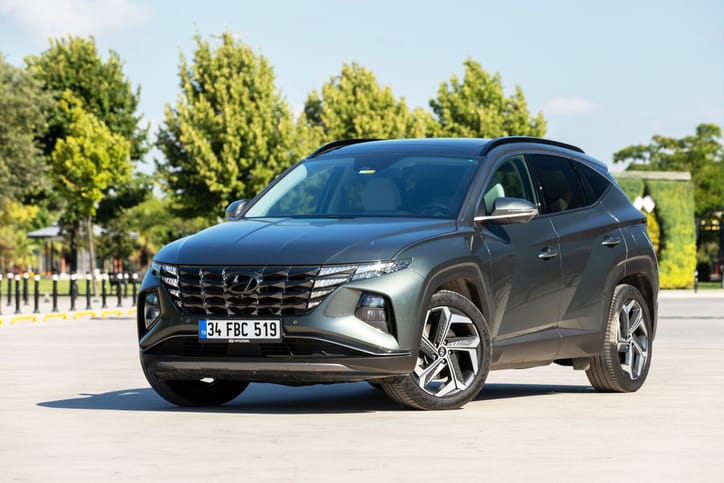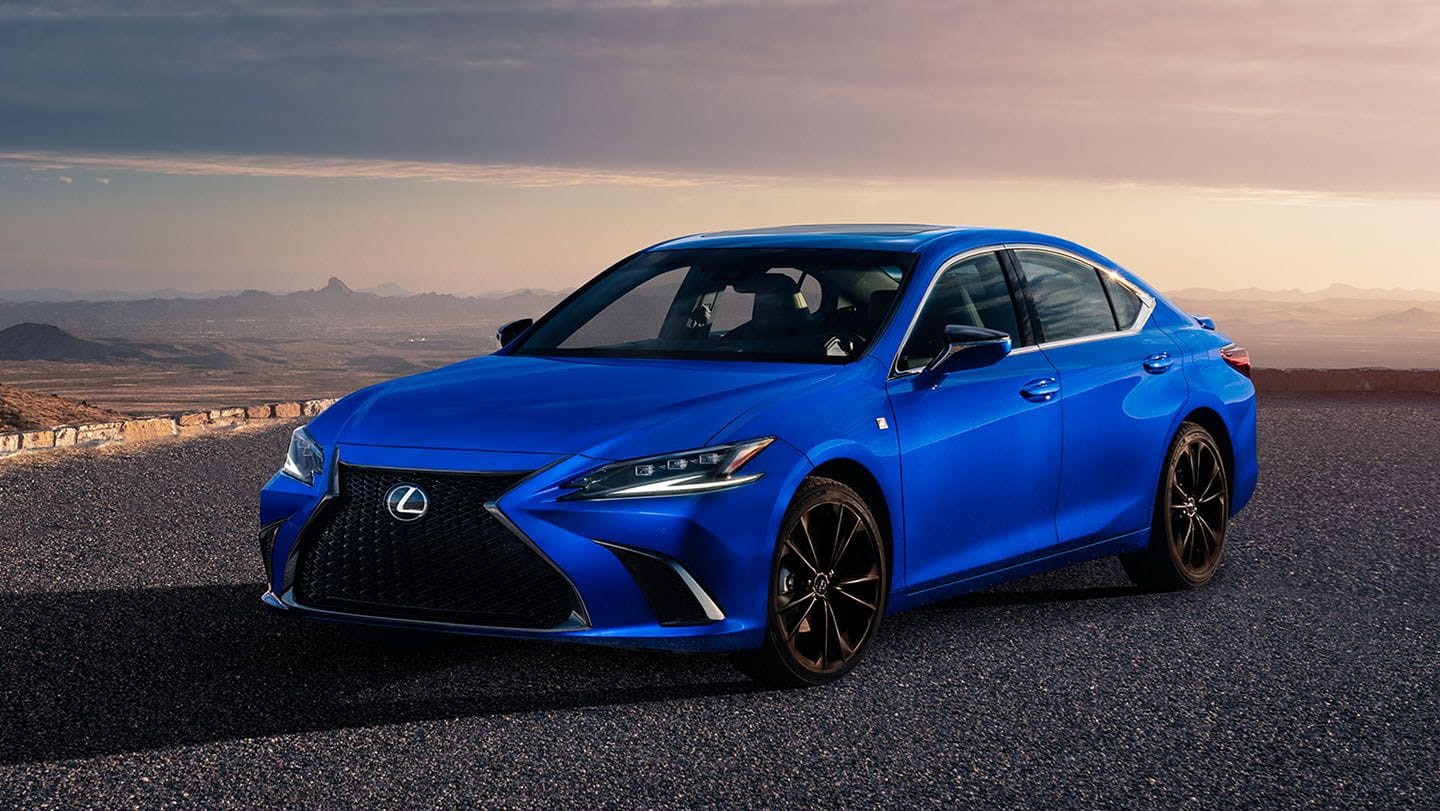Cruising in Serenity: A Guide to the Quietest Cars

In today's fast-paced world, carving out moments of peace can be a challenge. But even the daily commute doesn't have to be a cacophony of engine noise and road rumble. If you crave a tranquil driving experience, prioritizing a quiet car can make a world of difference.
This article delves into the world of hushed cabins, exploring the factors that contribute to a silent ride and highlighting some of the quietest cars on the market.
Why Does a Quiet Car Matter?
Beyond the obvious benefit of a more peaceful driving experience, there are several reasons why a quiet car should be a consideration:
- Reduced Stress: Constant exposure to noise can be a significant stressor. A quiet car can help you arrive at your destination feeling calmer and more focused.
- Improved Concentration: Whether you're using your commute for hands-free calls, listening to audiobooks, or simply enjoying quiet contemplation, a quieter cabin allows for better focus.
- Enhanced Safety: Reduced noise levels can improve your ability to hear important sounds like sirens or horns, potentially leading to safer driving.
- Luxury Experience: A quiet cabin is often associated with luxury cars, providing a more premium feel to your driving experience.
The Science of Silence: Factors Affecting Cabin Noise
Understanding the culprits behind car noise is key to appreciating the advancements made in noise cancellation technology. Here are some of the main contributors to cabin noise:
- Engine Noise: Combustion engines are inherently noisy, with the sound of pistons firing and exhaust fumes escaping contributing significantly. Electric vehicles, with their near-silent electric motors, have a natural advantage in this area.
- Road Noise: The interaction between tires and the road surface generates a significant amount of noise. Tire design and road conditions play a major role in this.
- Wind Noise: As air flows around the car at speed, it creates wind noise, particularly noticeable around windows and mirrors. Aerodynamic design plays a crucial role in minimizing this.
- Interior Materials: The materials used inside the cabin can either absorb or amplify noise. Fabrics and soft plastics tend to absorb sound, while hard plastics and metal can create unwanted resonance.
Technologies for a Tranquil Ride
Car manufacturers employ various strategies to create a quieter cabin experience. Here are some of the key technologies:
- Active Noise Cancellation (ANC): Similar to noise-canceling headphones, ANC systems use strategically placed microphones and speakers to detect and cancel out unwanted noise frequencies.
- Soundproofing Materials: Utilizing heavy, dense materials like felt and acoustic insulation in the cabin walls, floor, and headliner helps to absorb and dampen noise from the engine and road.
- Thicker Glass: Using laminated glass with a thin inner layer of plastic between two glass panes helps to reduce wind noise by dampening vibrations.
- Aerodynamic Design: Streamlining the car's exterior to minimize wind resistance not only improves fuel efficiency but also reduces wind noise.
- Engine Design: Modern combustion engines are often equipped with noise-dampening features like acoustic covers and optimized exhaust systems to minimize engine noise.
Contenders for Quietest Cars: Top Picks in Different Categories
Now that we've explored the science behind quiet cars, let's delve into some of the champions of serene driving, categorized based on vehicle type:
Luxury Sedans:
- Mercedes-Benz S-Class: The S-Class is renowned for its luxurious cabin, and quietness is a key element. It utilizes ANC, soundproof materials, and a sophisticated suspension system to create a hushed environment.

- Genesis G90: This Korean luxury sedan offers a compelling alternative to the S-Class, boasting an exceptionally quiet cabin thanks to extensive soundproofing, laminated glass, and active noise cancellation.

- Lucid Air: This all-electric luxury sedan leverages the inherent quietness of electric motors and combines it with advanced noise-reduction technologies for a remarkably peaceful driving experience.

Electric SUVs:
- Tesla Model X: While some Tesla models have been criticized for wind noise, the Model X excels in cabin quietness. Its panoramic roof design incorporates sound-dampening materials, and the electric powertrain contributes to a serene driving experience.

- Audi e-tron: This electric SUV prioritizes comfort and refinement, with a well-insulated cabin and active noise cancellation system that effectively reduces road noise.

- BMW iX: This luxurious electric SUV offers a very quiet ride, thanks to its aerodynamic design, soundproof materials, and active noise cancellation technology.

Mid-Size Sedans:
- Lexus ES: Lexus is known for its focus on comfort and quietness, and the ES is no exception. It features a well-insulated cabin with noise-canceling features and a smooth, quiet ride.

- Toyota Avalon: Sharing a platform with the Lexus ES, the Avalon offers a quieter-than-average experience in the mid-size sedan segment, thanks to its soundproofing and comfortable suspension.

Small SUVs:
- Hyundai Tucson: This popular SUV might surprise you with its quiet cabin. Hyundai has employed sound-absorbing materials and a well-sealed design to create a comfortable and peaceful driving environment.

- Buick Enclave: Buick is known for its focus on a luxurious and quiet ride, and the Enclave is no exception. It features a well-insulated cabin with active noise cancellation and a smooth suspension for a hushed driving experience.

- Honda CR-V: A practical choice for a quiet ride, the CR-V offers a well-isolated cabin with noise-dampening materials and a comfortable suspension that minimizes road noise.

Considerations When Choosing a Quiet Car:
Remember, there's no single "quietest car" as noise perception can be subjective. Here are some additional factors to consider:
- Your Budget: Luxury cars tend to prioritize quiet cabins, but some non-luxury models offer impressive noise reduction features as well.
- Type of Roads You Drive On: If you frequently drive on rough or uneven roads, a car with a well-isolated suspension can significantly improve cabin quietness.
- Tire Choice: Opting for tires designed for low noise generation can further enhance the quietness of your car.
The Future of Quiet Cars:
As technology advances, we can expect even quieter cars in the future. Here are some exciting possibilities:
- Advanced Active Noise Cancellation Systems: These systems will likely become even more sophisticated, capable of canceling out a wider range of noise frequencies.
- Electric Vehicles: The inherent quietness of electric motors will continue to be a major advantage, and advancements in battery technology will likely lead to a wider range of quiet and affordable electric vehicles.
- Improved Soundproofing Materials: Lighter and more effective soundproofing materials are being developed, allowing for quieter cabins without compromising on weight or fuel efficiency.
By prioritizing a quiet car, you can create a more peaceful and enjoyable driving experience. With the knowledge you've gained from this article, you're well on your way to finding the perfect serene sanctuary on wheels.
